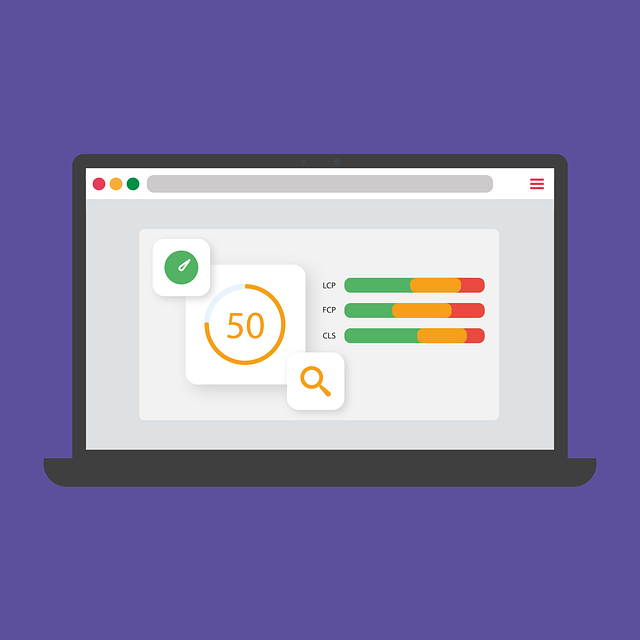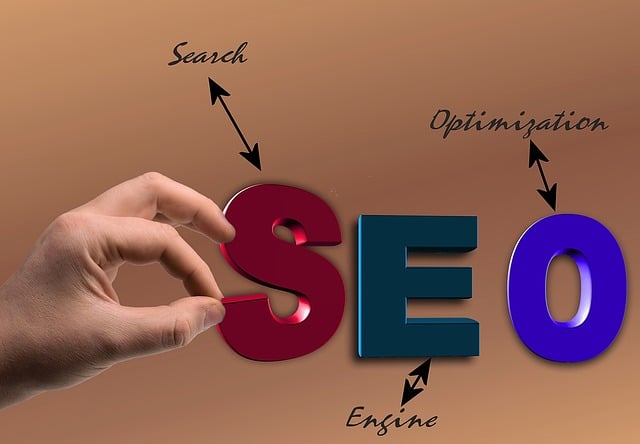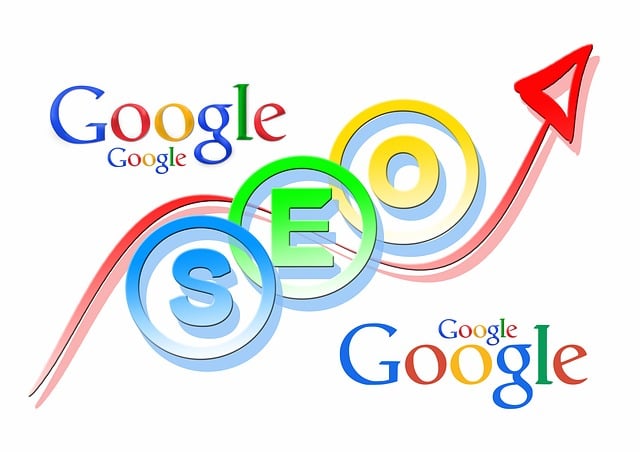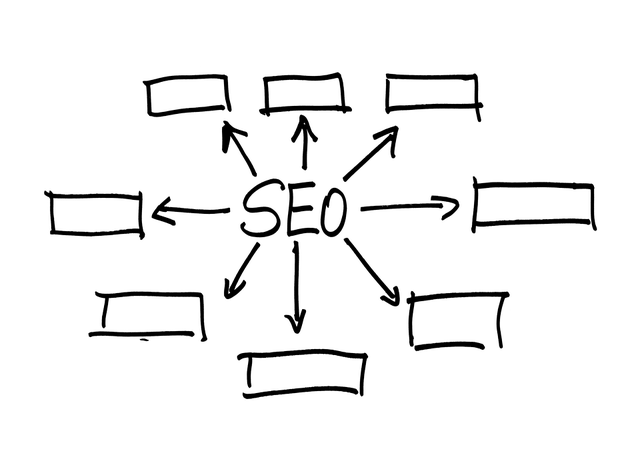Artificial Intelligence (AI) is transforming Technical SEO by automating data analysis and optimizing Core Web Vitals. This includes identifying performance bottlenecks like slow loading times, visual instability, and interactivity issues through machine learning algorithms. AI tools suggest improvements in code refinement, asset compression, and best practice implementation, leading to faster load times, improved navigation, reduced bounce rates, and higher SEO rankings. By focusing on metrics crucial for user experience, AI enhances search engine visibility and drives exceptional performance in mobile environments. The future of SEO lies in AI's ability to proactively predict and resolve technical issues, ensuring websites remain optimized and user-friendly.
“Unleash the power of Artificial Intelligence (AI) in revolutionizing your Technical SEO strategies. This comprehensive guide explores the evolving role of AI in enhancing search engine optimization, particularly focusing on Core Web Vitals Optimization. From improving page speed through machine learning to content optimization with Natural Language Processing, and automated link building, discover how AI is transforming website performance. We’ll delve into its impact on mobile SEO and future trends, equipping you with insights to stay ahead in the digital landscape.”
Understanding AI's Role in Technical SEO

Artificial Intelligence (AI) is transforming the way we approach Technical SEO, offering unprecedented opportunities to optimize websites and improve user experiences. At its core, AI enables automated analysis of vast data sets, including website performance metrics, user behavior patterns, and search engine algorithm updates. This capability allows for more efficient identification of issues that impact rankings and user satisfaction.
One key area where AI excels is in Core Web Vitals Optimization. By leveraging machine learning algorithms, AI tools can identify performance bottlenecks, such as slow loading times, high bounce rates, or visual stability issues. These insights empower SEO specialists to make data-driven decisions, ensuring their websites meet the evolving expectations of both users and search engines.
Core Web Vitals: A Deep Dive

Core Web Vitals represent a crucial set of metrics that measure user experience on a webpage, focusing on page load time, interactivity, and visual stability. These vitals play a significant role in AI-driven Technical SEO strategies, as they directly impact search engine rankings and user engagement. By optimizing for Core Web Vitals, businesses can enhance their site’s performance, ensuring faster loading times, seamless navigation, and reduced bounce rates. This optimization involves identifying and addressing issues like large file sizes, slow server response times, and content that takes too long to render.
AI tools are instrumental in this process, offering detailed analytics and insights into user behavior. They can help identify bottlenecks and provide data-driven recommendations for improvements. For instance, AI algorithms can suggest image compression techniques or code refactoring to reduce page load times. As search engines prioritize sites with excellent Core Web Vitals scores, incorporating these optimizations into SEO strategies is a game-changer, ensuring that websites not only rank higher but also deliver an exceptional user experience.
How AI Optimizes Core Web Vitals

Artificial Intelligence (AI) has significantly enhanced the way we approach Core Web Vitals Optimization in Technical SEO. By leveraging machine learning algorithms, AI tools can analyze vast amounts of data to identify performance bottlenecks and suggest improvements that would otherwise be difficult for humans to detect. These tools use sophisticated techniques to monitor metrics like load time, interactivity, and visual stability, which are crucial components of user experience.
In the process of Core Web Vitals Optimization, AI optimizes these metrics by automatically refining code, compressing assets, and implementing best practices for faster page loading, smoother interactions, and enhanced visual consistency. This not only improves search engine rankings but also significantly boosts user satisfaction, leading to higher engagement and reduced bounce rates.
Machine Learning for Page Speed Enhancement

Machine Learning (ML) has emerged as a powerful tool in optimizing page speed, which is a critical aspect of Core Web Vitals Optimization. By leveraging ML algorithms, SEO specialists can now analyze vast amounts of data to identify bottlenecks and make informed decisions to improve website performance. These models can learn from historical data and predict future trends, enabling dynamic adjustments to code and content delivery networks (CDNs). For instance, ML can optimize image compression, minification of HTML/CSS, and JavaScript caching, directly impacting page load times.
Through continuous learning and adaptation, ML models can ensure that websites deliver content efficiently, enhancing user experience and search engine rankings. This technology is particularly useful for large-scale websites with complex architectures, as it automates the process of fine-tuning settings to meet speed benchmarks set by major search engines like Google. As a result, webmasters can focus on creating high-quality content while letting AI handle the technical optimizations necessary for top search positions.
Natural Language Processing and Content Optimization

Natural Language Processing (NLP) is a powerful tool within AI that enhances content optimization, specifically in Technical SEO. By understanding user search intent and querying patterns, NLP enables the creation of more relevant and targeted content. This ensures that web pages align with user expectations, leading to improved Core Web Vitals Optimization as satisfied users interact with content for longer periods, reducing bounce rates and increasing engagement metrics.
AI-driven NLP can analyze vast amounts of data to identify trends and patterns in search queries, allowing for the optimization of page titles, meta descriptions, and header tags. This strategic adjustment enhances search engine visibility and click-through rates, ultimately driving more organic traffic to websites. By incorporating NLP techniques, SEO practitioners can refine content strategies, ensuring that each piece of content resonates with its intended audience, resulting in better rankings and increased online accessibility.
AI-Driven Site Structure Analysis

AI-driven site structure analysis is transforming Technical SEO, enabling professionals to optimize website architectures with unprecedented efficiency and precision. By leveraging machine learning algorithms, AI tools can meticulously scrutinize a site’s hierarchy, interlinking patterns, and content distribution, identifying inefficiencies that impact user experience and search engine rankings. This includes pinpointing slow-loading pages, poorly structured URLs, and redundant or duplicate content—all factors that directly relate to Core Web Vitals Optimization.
These insights empower SEO strategists to make data-driven decisions, reorganizing site maps and restructuring content to enhance crawlability and indexability. AI’s ability to process vast amounts of data quickly translates into actionable steps for improving website performance. As search engines prioritize user satisfaction, this innovative approach ensures sites are not only optimized for search algorithms but also deliver seamless experiences that keep visitors engaged.
Automated Link Building Strategies

Automated Link Building Strategies leverage AI to streamline and optimize the process of acquiring backlinks, an essential component of Technical SEO. These strategies employ machine learning algorithms to identify high-quality link opportunities across the web. By analyzing website data, including content relevance and user behavior, AI models can predict which sites are most suitable for partnerships and guest blogging. This approach ensures that links acquired are not only relevant but also beneficial in improving a site’s search rankings.
In tandem with Core Web Vitals Optimization, automated link building enhances the overall health of a website. Core Web Vitals measure user experience by evaluating load times, interactivity, and visual stability. AI-driven link acquisition strategies can help boost these metrics by securing links from authoritative sources that align with the site’s content and purpose. This holistic approach not only strengthens a website’s technical foundation but also improves its visibility and performance in search engine results.
AI's Impact on Mobile SEO

The integration of Artificial Intelligence (AI) in Technical SEO has brought about significant advancements, particularly in enhancing mobile search experiences. With the vast majority of internet users accessing websites through mobile devices, optimizing for this platform is paramount. AI algorithms play a pivotal role in ensuring that websites are not only visible but also highly functional on smaller screens. One key area of impact is Core Web Vitals Optimization, which focuses on user experience metrics like page load time, interactivity, and stability.
AI-powered tools can analyze website performance data at scale, identifying bottlenecks and suggesting improvements to these vitals. For instance, machine learning models can predict user drop-off points and provide insights into the most critical elements to optimize, thereby improving mobile search rankings. This level of precision enables SEO specialists to make data-driven decisions, fine-tuning website structures and content delivery networks (CDNs) for optimal mobile performance.
Future Trends in AI Technical SEO

As we move further into the age of artificial intelligence, it’s clear that AI-driven technical SEO will continue to evolve at a rapid pace. One of the most anticipated trends is the increased focus on Core Web Vitals Optimization. AI algorithms will play a pivotal role in analyzing and improving key metrics like load time, interactivity, and visual stability, ensuring websites deliver an exceptional user experience. This optimization will not only enhance search rankings but also drive higher engagement and lower bounce rates.
Another exciting development is the integration of machine learning models to predict and mitigate potential technical issues before they impact users. AI can identify patterns in data to anticipate problems like broken links, mobile usability concerns, or crawl errors, enabling SEO specialists to proactively address these challenges. This proactive approach promises to revolutionize the way we maintain and optimize websites, ensuring they remain not only search engine-friendly but also user-centric.
